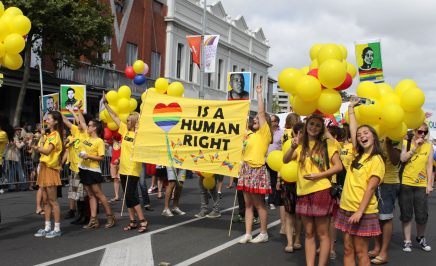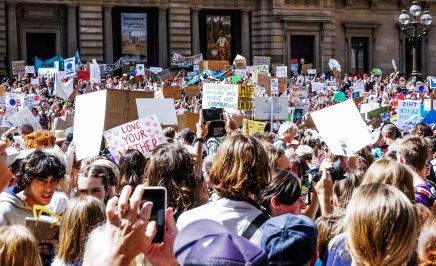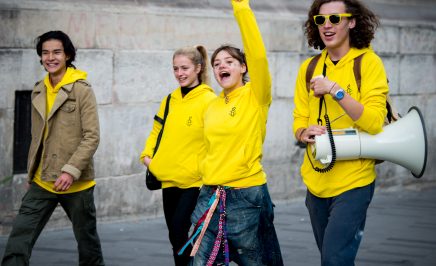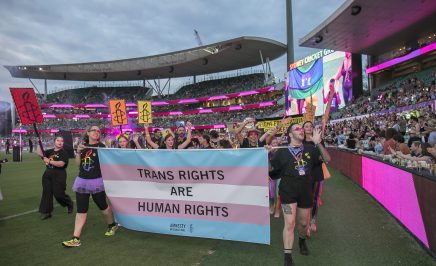Full disclosure: I’m not a career counsellor. I had no idea where I was heading when I left the classroom, but now as a Communications Coordinator for Amnesty International, I can say that I’m pretty lucky to be spreading the word about human rights for a living. I witness humanity at its worst – but also its most inspiring.
Human rights are universal – and the opportunities to work to defend human rights are pretty vast. Here are just five of the cool human rights jobs I’d suggest to my younger self.
1) Human rights lawyer
Good at arguing your way out of anything? A typical day as a human rights lawyer can mean anything from assisting asylum seekers in navigating Australia’s refugee policies, to preparing cases on companies trampling Indigenous Peoples’ rights.
To tackle the big cases you will need plenty of experience first, but once you’ve earned your stripes as an all-trades lawyer, there are opportunities to start work for human rights in a pro bono (free) capacity.
Darwin lawyer Kevin Kadirgamar, who was was awarded the 2015 Australian Young Lawyer Award for his pro bono refugee work says: “Working in migration and refugee law is both challenging and rewarding. It is an area that enables a lawyer to make a significant difference in a client’s life.”
Pros: Giving a voice to the voiceless
Cons: Working for free
2) Film-maker
Who doesn’t love movies? Wield your artistic and directorial skills for human rights – think amazing documentaries like Chasing Asylum.
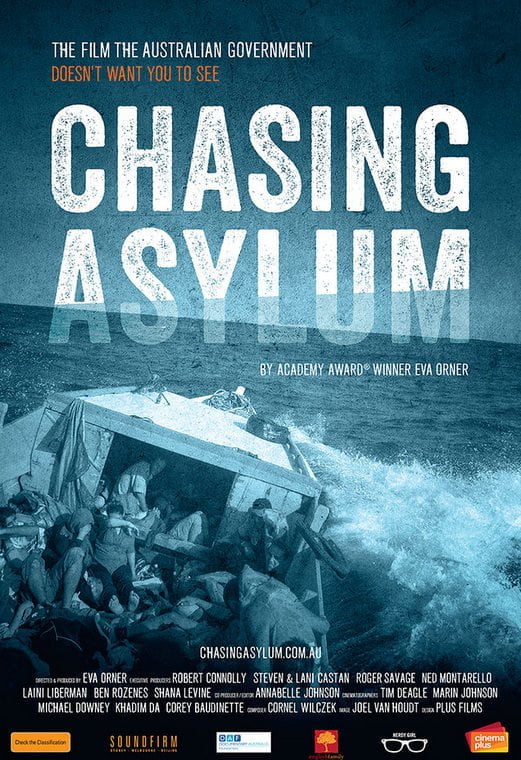
Creator of the award-winning Between the Devil and the Deep Blue Sea, Jessie Taylor says: “In my experience, you can talk to people as much as you want about policy and politics, but it’s very unlikely to change anyone’s mind. The only way to change people’s minds about the question of asylum seekers is for them to come face to face with the human beings.”
Pros: Travelling around the world and hearing amazing stories
Cons: Finding funding
3) Activist
So you won’t get paid in cash, but you’ll bank a lot of karma. And when you are campaigning for something you are passionate about, whether it be LGBTQI rights, refugee rights or preventing violence against women, the feel-good factor is amazing.
Rae, who volunteers in Amnesty’s Brisbane office says: “To me, being a volunteer activist is about standing up for what’s right, every time. It’s having the difficult conversation with a frustrated family member; explaining why refugees can’t go back to where they came from. It’s sitting up late at night reading article after article about Indigenous rights in Australia, because you just want to know more.
The best part about being an Amnesty activist is that it doesn’t matter where you’re from, what you do for a living, or how old you are. Anyone is welcome. The only requirement is passion.”
Pros: Flexible hours and work; karma points
Cons: Difficult conversations
4) Global researcher
Human rights are borderless, so if you are keen to travel and are fearless enough to investigate human rights abuses around the world, consider becoming a researcher. Being a researcher means mixing investigative journalism and research, advocacy work, a thorough understanding of law and policies and a knack for community engagement.
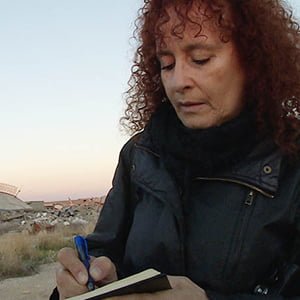
Amnesty International’s Crisis Response Director Tirana Hassan, who spent the last ten years living and working in conflict zones says: “My team and I are there to document what happens on the ground and to bring it to the world’s attention – bearing witness, being on the ground and forcing action and accountability in real time – can prevent further violations from happening.”
Pros: Helping people in desperate situations
Cons: A whole new meaning to ‘never home’
5) Social media whiz
Can you imagine getting paid to spend your day on Facebook? That’s exactly what Jessie Mawson, social media specialist at Amnesty International Australia does.
To excel in this field, you’ll need sweet graphic design skills, a brain for data analytics, and a keen eye for the latest trend and the newest tech.
“It’s easy to think that social media is all selfies, memes and pictures of people’s breakfast,” says Jessie. “But, really, it can be a powerful tool for social change. It’s never been easier for good ideas to catch on and start a movement.”
Pros: Sharing the message of human rights with Australia
Cons: Trolls. Need we say more
As a global movement of 10 million people, and 500,000 people in Australia, Amnesty International has the people power to build public support for a Human Rights Act. Learn more about what are human rights and our Human Rights Act campaign work.

